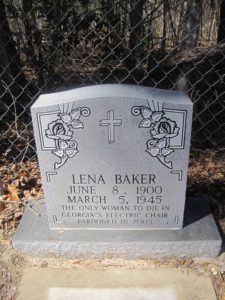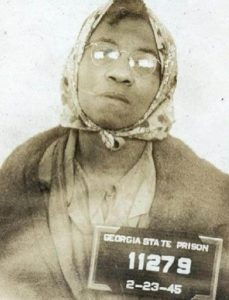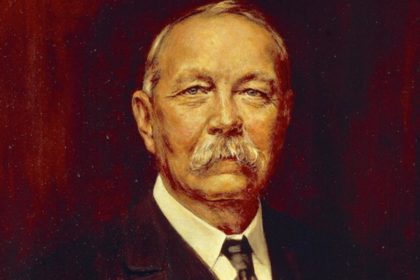Lena Baker was an African American maid in Cuthbert, Georgia, who was convicted of capital murder of her white employer, Ernest Knight. She was executed by the State of Georgia in 1945. Baker was the only woman in Georgia to be executed by electrocution. Take a look below for 21 more interesting and bizarre facts about Lena Baker.
1. The slaying and execution came during a decades long period of state suppression of civil rights of black citizens in Georgia. The state imposed legal racial segregation and second class status to black citizens.
2. At the time of her trial, a local newspaper even reported that Baker was held as a slave woman by Knight, and that she shot him in self defense during a struggle.
3. In 2005, 60 years after her execution, the state of Georgia granted Baker a full and unconditional pardon. A biography was also published about Baker in 2001, and it was adapted for the feature film The Lena Baker Story, which chronicle her life, trial and execution.
4. She was born on June 8, 1900, to a family of sharecroppers and she was raised near Cuthbert, Georgia. As a child, she worked alongside her siblings as farm laborers, chopping cotton for a farmer called J.A. Cox.

5. By the 1940s, she was a mother of 3 children and worked as a maid to support her family.
6. In 1944, she worked for Ernest Knight, an older man who had a broken leg. He owned a gristmill and, after they started a sexual relationship, often kept her imprisoned there for days at a time.
7. Knight’s son and the townspeople didn’t like their relationship and tried to end it by threatening Baker.
8. When an argument broke out between them, in which Knight threatened Baker with an iron bar, she tried to escape and he stopped her. They struggled over his pistol and she shot and killed him. She immediately reported the incident and said she acted in self defense.
9. She was charged with capital murder and stood trial on August 14, 1944. The trial judge was Judge William “Two Gun” Worrill, who kept a pair of pistols in view on his judicial bench.
10. At her trial, she testified that Knight forced himself on her on multiple occasions and that she was threatened to leave him by the townspeople and his son. When she tried, he attacked her and she shot him in self defense.
11. When she killed him, she reported the incident to J.A. Cox, the county coroner who she previously worked for.
12. The all white, all male jury rejected Baker’s plea of self defence and convicted her of capital murder by the end of the first day of the trial. The charge carried an automatic death sentence.
13. After Baker’s court appointed counsel, W.L. Ferguson, filed an appeal, he dropped Baker as a client.

14. Governor Ellis Arnall granted Baker a 60 day reprieve so that the Board of Pardons and Parole could review the case, but in January, 1945, they denied Baker clemency.
15. She was transferred to Georgia State Prison at Reidsville on February 23, 1945.
16. Her last words were, “What I done, I did in self-defense, or I would have been killed myself. Where I was I could not overcome it. God has forgiven me. I have nothing against anyone. I picked cotton for Mr. Pritchett, and he has been good to me. I am ready to go. I am one in the number. I am ready to meet my God. I have a very strong conscience.
17. She was executed on March 5, 1945.
18. She was buried in an unmarked grave behind Mount Vernon Baptist Church, she she had sung in the choir.
19. In 1998, members of the congregation arranged for a simple headstone for her grave. That year 2 articles were published about her case.

20. In 2003, descendants of Baker’s family began to mark the anniversary of her death and Mother’s Day at her graveside. That year, Baker’s grandnephew, Roosevelt Curry, requested an official pardon from the state, aided by the Georgia based prison advocacy group, Prison and Jail Project.
21. People have suggested that in 1945, the Board of Pardon and Parole could have lowered her charge to voluntary manslaughter, which would have given her a 15 year sentence and saved her life.




